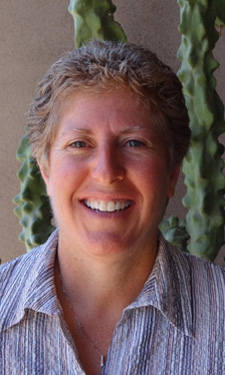
Judy Weiss is the parks and recreation director for Coconino County, Arizona, the second largest county in the continental U.S.—spanning over 18,000 square miles. With more than 30 years of experience, Weiss became involved in the national accreditation process in the 1990s as a pilot agency. She was first appointed to the Commission for Accreditation of Parks and Recreation Agencies (CAPRA) in 1997, serving as chair from 2001 to 2003. Weiss is currently sitting on the CAPRA Commission as an American Academy of Park and Recreation Administration representative.
With an intense interest in accreditation, professional certification, and the benefits these agency and individual credentials bring to the profession, Weiss is also the chair-elect of the National Certification Board and is a proud member of the inaugural class of Certified Parks and Recreation Executives (CPRE).
What drives you to lend your time and talents to professional certification efforts like the CPRE exam?
With every keynote speech at a conference comes the admonition that we are not positioning the profession in such a way as to be considered an essential service. It has always seemed to me that communication with policy-makers and stakeholders would educate them on the importance of what we provide to our communities. A key part of that communication is to be a credible communicator, and certainly a certified professional has earned that credibility. I believe that certification is the ultimate statement to peers, policy-makers, and citizens that we have a serious commitment to the highest standards of professionalism.
NRPA has taken the lead in providing an accredited professional certification program to elevate the profession. The CPRP and CPRE certifications, along with the AFO (aquatic facility operator), CPSI (certified playground safety inspector), and others, recognize different levels of mastery of the skills needed to be a top professional.
Can you share any specific ways in which you or others you have worked with have benefited from the professional certification process?
The tricky thing about promoting professional certification is that it is discretionary on the part of the individual and the benefits are somewhat intrinsic. I can remember the various iterations of the certification and the heated discussions about calling ourselves CLPs—“Certified Leisure Professionals.” Explaining that acronym to someone outside the profession usually provoked a smile—or, on rare occasions, a smirk. I have noticed, however, that there is now a more respectful response, and more than a few agencies are requesting certified professionals to apply for job openings.
The real benefit of certification as I see it is the ongoing education required to maintain the certification. It ensures that professionals remain cutting-edge, which can only benefit our agencies and the citizens we serve.
Can you comment on your work with CAPRA accreditation? What has been rewarding to you about working with agencies in their accreditation process?
I got involved with the accreditation process by accident. I responded to a "cold call" letter from NRPA looking for pilot agencies and went into it totally blind. It was like winning the professional lottery. To be able to see the pride of the agencies that achieve accreditation—and the benefits they accrue from the process—has been extremely rewarding. Being exposed to these top agencies has helped me and my agency to aspire to the highest operational standards.
It strikes me that more agencies might undertake the process if they knew about an accredited agency that recently experienced a drowning in one of their swimming pools. The school district had contracted to use the city’s pool for physical education and it was the school district’s responsibility to oversee the class. When the tragic drowning occurred, the city was cleared of any liability. They attribute this to meeting the standards of documentation required by the accreditation process.

